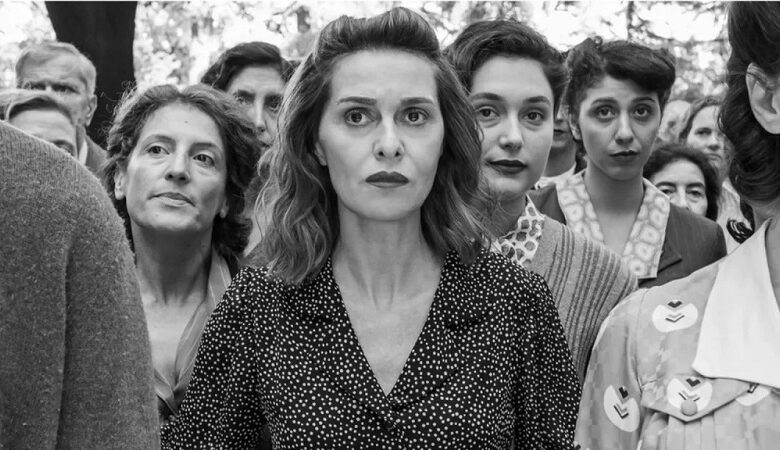Empowering Women Through Film: The Movie that Surpassed Barbie in Italy

In 2023, Greta Gerwig’s “Barbie” made headlines as the most financially successful movie ever directed by a female filmmaker and the highest-grossing film of the year. However, in Italy, it was surpassed at the box office by another film, “There’s Still Tomorrow” (C’è Ancora Domani), directed by 50-year-old actress, writer, and singer Paola Cortellesi. Cortellesi’s film, which delves into the female experience, captivated Italian audiences, becoming a phenomenon and outperforming blockbusters like “Barbie” and “Oppenheimer.”
“There’s Still Tomorrow” tells the story of Delia, a housewife and mother living in poverty in post-war Rome in 1946. The film resonates with contemporary Italian audiences by addressing themes of domestic violence, a pressing issue in Italian society. Cortellesi, who also portrays the protagonist, emphasizes that the film explores cultural mentalities surrounding violence against women that have persisted for centuries.
The relevance of “There’s Still Tomorrow” is underscored by recent statistics on femicide in Italy. In 2023, 120 women were murdered, with over 50% of the cases involving partners or ex-partners. The film’s release coincided with mass protests sparked by the killing of university student Giulia Cecchettin, shedding light on the urgency of addressing violence against women.
Cortellesi explains that while femicide is a tragic reality, it often stems from a history of violence that goes unreported or unaddressed. Through her film, she aims to raise awareness and prompt societal change by challenging ingrained attitudes towards love and possession.
Despite its setting in 1946, “There’s Still Tomorrow” confronts contemporary issues with irony and humor, making it accessible to a wide audience. Cortellesi utilizes humor to engage viewers and foster empathy for the protagonist, avoiding confrontational approaches to sensitive topics.
The success of “There’s Still Tomorrow” in Italy can be attributed to its poignant storytelling, which resonated with audiences across demographics. Cortellesi notes that 45% of the film’s audience were men, indicating its universal appeal and ability to spark meaningful discussions about gender dynamics and societal norms.
The film’s longevity and financial success are further credited to word-of-mouth promotion and extensive outreach efforts, including regional screenings and Q&A sessions with the filmmakers. Cortellesi emphasizes that “There’s Still Tomorrow” serves as an invitation for audiences to reflect on shared experiences and advocate for change.
Ultimately, Cortellesi views her film as a tribute to future generations, inspired by her 11-year-old daughter. By addressing women’s rights and societal challenges, she hopes to empower younger generations to continue advocating for equality and justice.






